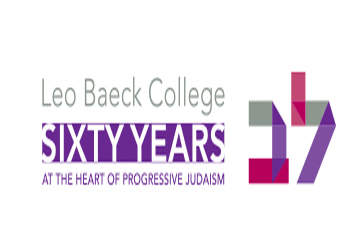The Leo Baeck College in London revived – indeed saved – non-Orthodox Judaism in Europe and beyond. The Holocaust wiped out the Liberal (Reform) rabbinic seminary in Berlin and its Conservative counterpart in Breslau (now Wroclaw in Poland). Some of the rabbis who survived led congregations in exile, but there was no new generation of leaders to take their places.
Rabbi Leo Baeck, the legendary head of German Jewry in the Nazi period who settled in London after being liberated from the Theresienstadt concentration camp, gathered around him some of his former students in the Berlin seminary who had come as refugees to England and served congregations there. They were to form the Jewish Theological College in London to train a new generation of progressive rabbis and educators.
Rabbi Baeck was to deliver the inaugural address at its opening ceremony in September 1956, but he fell ill before the event and died shortly afterward. The college was renamed in his memory.
I came from Sweden a year later as the first student from abroad to join the five local men around whom the college was established. Later, other men and women enrolled, both from England and continental Europe. Our teachers were mainly refugees from Germany who had been trained by such giants of German Jewry as Martin Buber and Rabbi Baeck.
Since its inception, 185 rabbis have been ordained by the college and another 90 women and men have received diplomas in Jewish education. They serve Reform and Liberal (the two branches of progressive Judaism) congregations and other institutions in the United Kingdom, as well as Liberal synagogues in the Netherlands, Germany, France, Switzerland, the former Soviet Union and elsewhere in Europe. England’s leading Masorti (Conservative) rabbi is also a Leo Baeck graduate.
Without it, there would be no non-Orthodox Judaism in Europe today. Most of those who nowadays belong to Liberal, Reform and Masorti congregations would have been lost to Judaism and the Jewish People had they not had progressive teachers to guide them.
READ: PANELISTS DEBATE THE FUTURE OF EUROPEAN JEWS
Over the years, students came also from North America, and several graduates serve congregations there today. At one point, there were six of them in Canada. Other graduates have found their way to Australia, South Africa, Latin America, Israel and even Singapore.
Earlier this month, teachers and graduates of the college’s rabbinic and education programs came together in London to celebrate the college’s 60th anniversary. I was in London and stayed for the event.
Today, the Leo Baeck College isn’t alone in Europe training non-Orthodox rabbis and educators. Though a French seminary closed down not long after it was established in the 1950s, and a Dutch program is serving local communities, the Geiger College in Berlin, named after one of the founders of Liberal Judaism in Germany, was established some 20 years ago and is said to be thriving, not least thanks to funding from the German government.
The Berlin institution has Liberal and Conservative streams, and trains both rabbis and cantors. Some of its graduates are active in Germany and in other European countries. What the Leo Baeck College pioneered is being augmented there.
Despite the growing anti-Semitism in Europe, or perhaps as a response to it, non-Jewish women and men, some with Jewish ancestry, are aligning themselves to the Jewish community in ever greater numbers. Liberal and Conservative rabbis make it possible for them to embrace Judaism and live Jewish lives. Similarly, gays and lesbians are accepted and integrated into non-Orthodox congregations.
When exponents of intransigent Orthodoxy seek to delegitimize liberal versions of Judaism, they implicitly or openly thwart Jewish continuity, particularly in the small Diaspora communities around the world. The colleges in London and Berlin, encouraged and supported by the World Union for Progressive Judaism, are making sure Jewish life will continue there. They deserve our encouragement and admiration. They’re making Jewish history.
